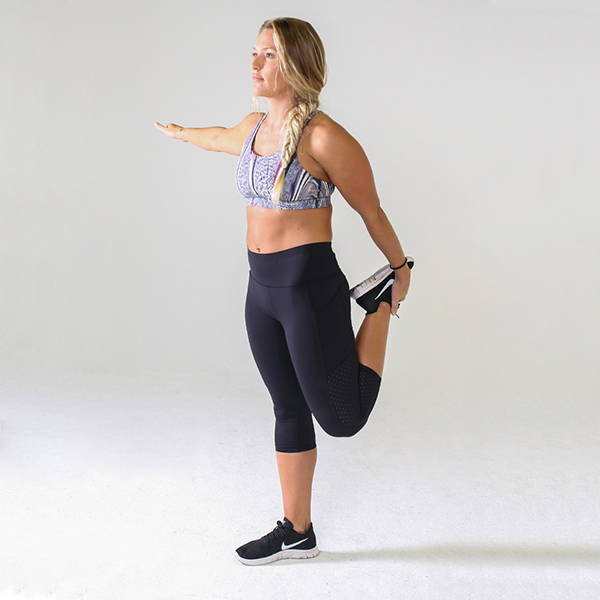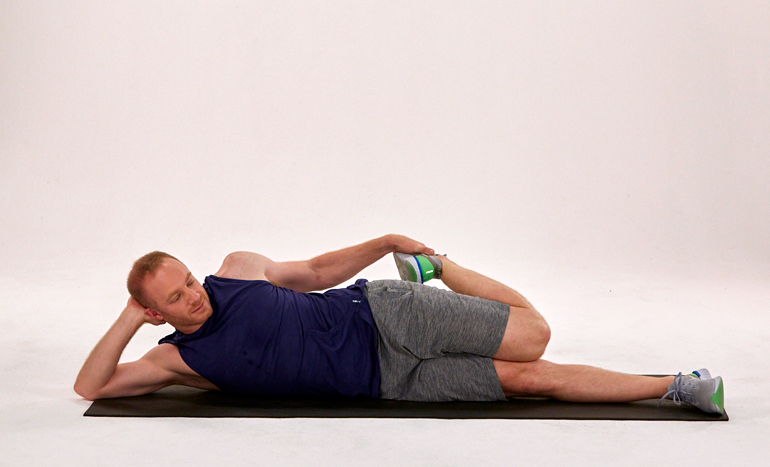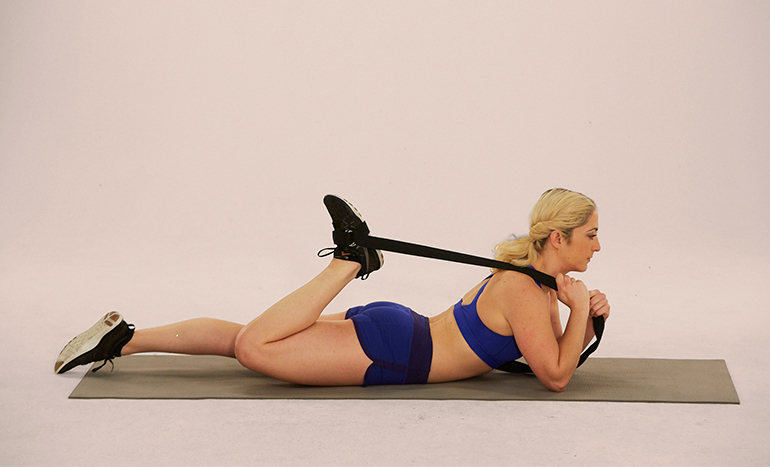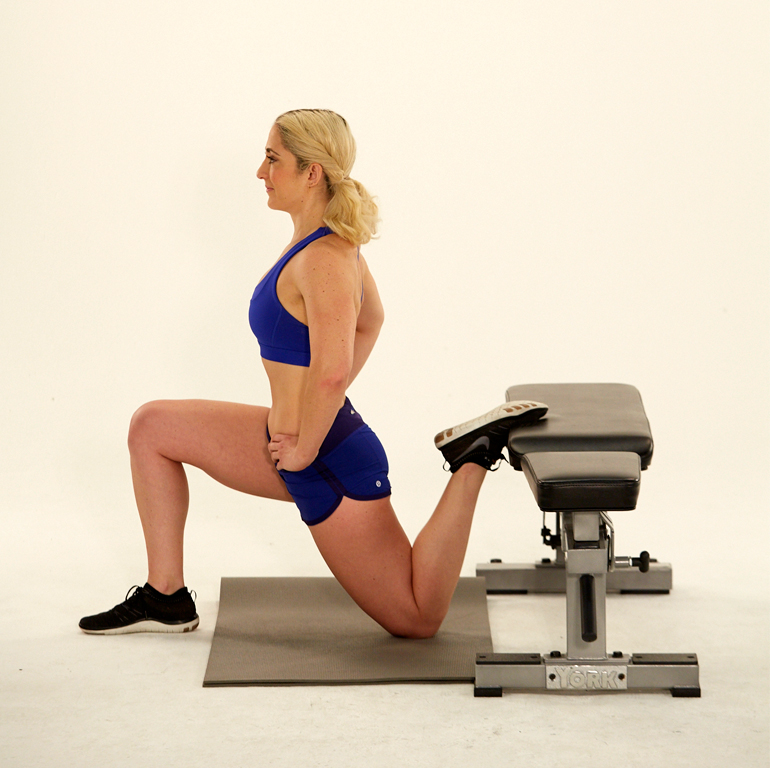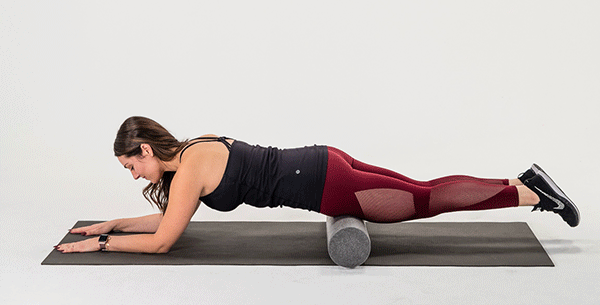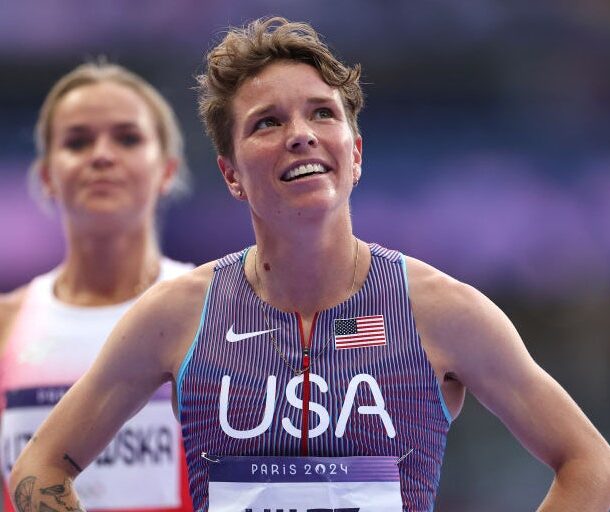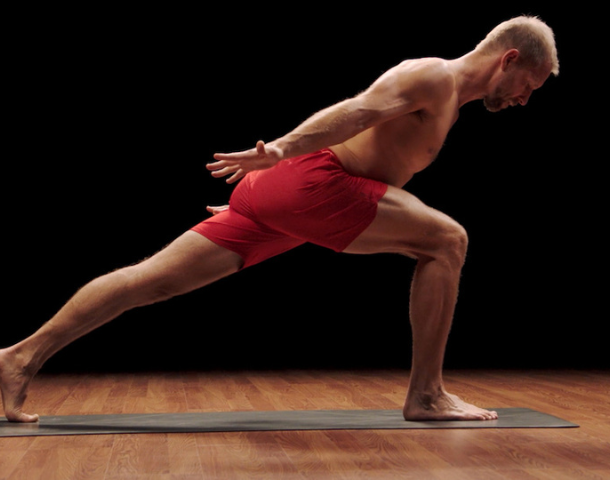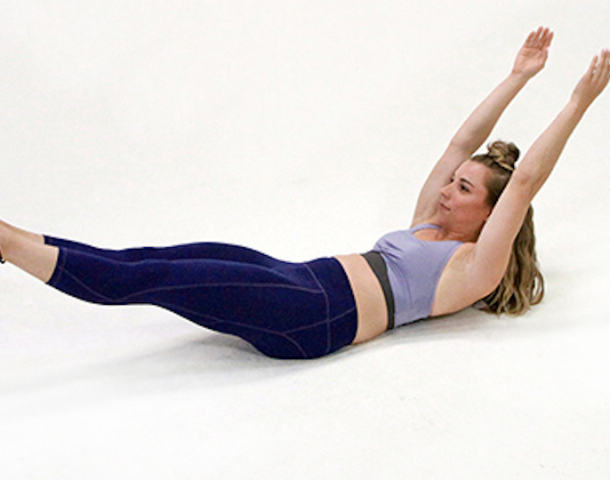Quad stretches aren’t just for runners and people with bad knees.
If you exercise your quads in any way — including squatting, lunging, and climbing stairs — good quad stretches can help correct muscle imbalances, decrease muscle tension, and improve your overall functional movement.
They’re beneficial for leg workouts, runners, yoga enthusiasts, or anyone who’s quad dominate or might want to give the front of their thighs some extra attention.
“To get the most out of your quad stretches, I suggest contracting your hamstrings and glutes in order to get a full stretch in your quads without compensatory motions,” Cody Braun, CSCS, advises.
He suggests doing these poses in your cooldown at the end of your workout, and holding each quad stretch for at least 30 seconds.
Here’s a list of five of the best quad muscle stretches that you can do after a workout.
1. Standing Quad Stretch
- Stand with your feet hip-width apart, using a chair or wall for balance if necessary.
- Bend your right knee and lift your foot behind you, grabbing the top of it with your right hand.
- Keeping the pelvis tucked and the right knee pointed toward the floor, use your arm to pull the heel toward the glutes until you feel tension in the quad muscles.
- Release your leg, and repeat on your other side.
2. Lying Side Quad Stretch
- Lie on your right side with your legs straight and stacked on top of each other. Bend your right arm and use your hand to prop up your head.
- Bend your left knee, and reach your left hand back to grab your foot.
- Keeping your left knee aligned with your right knee, use your hand to pull your foot toward your glutes until you feel tension in the quad muscles.
- Release the foot and repeat on the opposite side.
3. Prone Quad Stretch With Strap
- Sit on the floor and loop a strap around the top part of your right foot. Using your right hand to keep tension in the strap, roll over onto your stomach.
- Keep your left leg straight, bend your right knee. Pull the strap with both hands to bring your right foot toward your glutes until you feel tension in the quad muscles. Keep the hips pressed against the floor.
- Release the foot and repeat on the opposite side.
4. Rear-Foot-Elevated Quad Stretch
- Stand facing away from a knee-high bench. Place the top of your right foot on top of the bench and lower down so your right knee is resting on the floor and your left leg is bent at 90 degrees. Use a mat or cushion under your right knee to alleviate any discomfort.
- Keeping the chest up and the glutes engaged, slowly press your hips forward to increase and release tension in the right quad.
- Release the foot and repeat on the opposite side.
5. Quad Foam Roll
While this isn’t technically a stretch, it can still help to relax your quad muscles. Foam rolling can help improve recovery after exercising and alleviate soreness.
- Lie facedown on the floor with your legs straight and a foam roller under your quads. Prop yourself up on your forearms.
- Slowly roll your quad muscles from the top of your thighs to just above the knees.
Why Stretching Your Quad Muscles Is Important
Quad stretches obviously help mitigate soreness and relieve tension in your quad muscles (located in the front of your thigh), but they also have a more holistic impact on the way the body moves and feels.
Braun explains that adding good quad stretches to your mobility routine can help correct muscle imbalances that often lead to issues like knee and lower back pain.
“When your hip flexors and quads are used to being activated, you can start to develop what’s known as ‘quad dominance,’” he says. This is when your quads take over during lower body compound exercises, making your hamstrings and glutes less effective.
By stretching your quads, you can help create a more balanced distribution of work in your legs. This gives your body the chance to move better and avoid straining areas like your back and knees.
“Fixing the imbalance allows the other muscles to do their job and appropriately help when exercising,” Braun adds. “Compensations from other muscles not doing their job is what puts strain on your joints.”
Just keep in mind that stretching is only one part of the equation. In order to fully fix imbalances in your body, you also need to strengthen weaknesses and fix any motor patterns that might be off.
